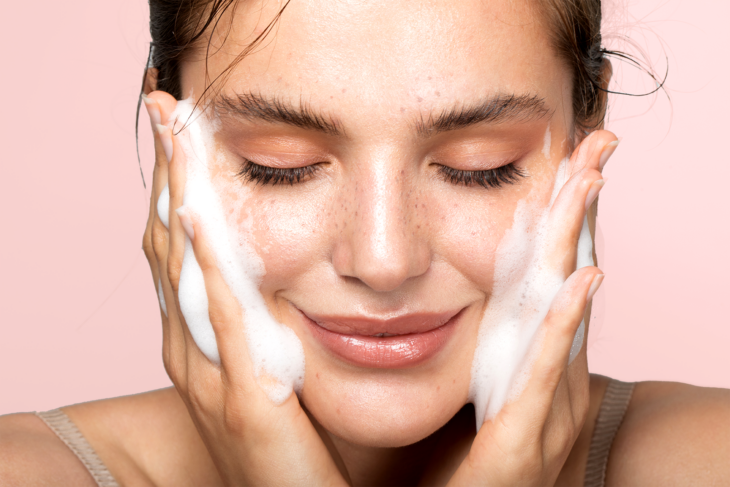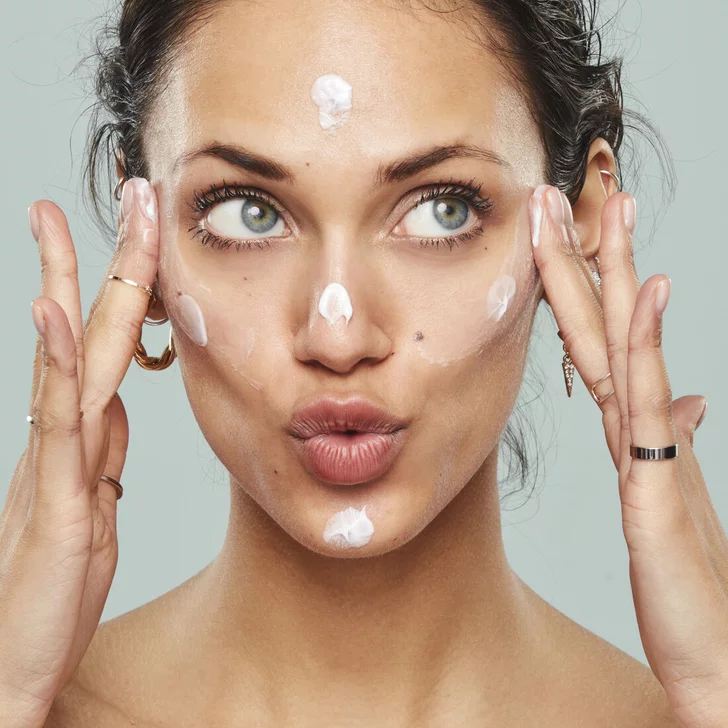Skin care is a huge topic across all social media platforms and the beauty industry. Everyone is constantly looking for that magic serum that will solve all of their dermal concerns, and the ultimate step-by-step regimen that will leave their skin flawless for life. Sounds a little extreme when you think of it that way, doesn’t it?
Before we dive into different ways to care for your skin, do keep in mind that everyone is different, meaning that there is no single magical potion that will suit just anyone’s needs. Instead, you must take into consideration various factors including your lifestyle, genetics, hormonal factors, underlying disease or deficiencies, and the general tendencies of your skin. Let’s discuss.
Contents
What’s my skin type?
The overall state of our skin at its base is incredibly important when it comes to finding the proper products for you. Depending on the above mentioned factors, you may have skin that leans more towards the oily or dry side, or have generally mixed skin, mainly depending on outside factors such as the climate in your environment and time of year, as well as hormonal factors. Based on your skin type, you can move forward to see what kind of tools you should be using to maintain or improve the quality of your skin.
What are my skin care goals?

Source: goodhousekeeping.com
While it may seem obvious, many people have different goals when it comes to their skin. Some of us want to maintain our youthful appearance, while others may want to reverse some already existing signs of aging. Some people may just want a general regimen to make sure they don’t age prematurely, while others want to tackle issues completely unrelated to aging, such as acne, eczema, or melasma.
If your goal is to maintain the current quality of your skin, you can likely keep doing what you’re doing if it seems to be working just fine. If you are noticing some beginning signs of aging and want to make sure they don’t become more severe, then you may want to speak with a physician. The same goes for reversing signs of aging, and addressing medical dermatological concerns, as most of them cannot be treated unless you have been prescribed medication to treat them. You can also get various treatments such as facial skin spa, according to imagineyounew.com, which is beneficial to refresh your skin.
What am I willing to do for my skin?
This is one of the most important questions to take into consideration. Based on the amount of effort that you are willing to put into your skin care regimen, the products and treatments involved can differ tremendously.
Of course, there is a long list of products that many influencers will swear by, including creams, serums, toners, mists, and sprays, as well as oils, scrubs, exfoliants, cleansers, and face masks. According to medical experts at this website, class=”id91″ most of these products aren’t actually necessary and there are really only 3 major factors that make up the quality of your skin (that can be addressed). These factors include collagen and elastin, hydration, and UV protection.
Collagen in particular is one of the most important proteins when it comes to the quality of your cutaneous layer, and ensures that it maintains its elasticity and firmness. As collagen production begins to slow down during the aging process, we begin to show signs of aging including fine lines, wrinkles, and sagging skin. Elastin is a similar protein that is primarily responsible for the elastic connective tissue that makes up our skin.
Keeping your skin hydrated not only with topical applicants such as moisturizing creams, oils, and serums, but by orally consuming more water, will ensure that it remains smooth and soft. Hydration also flushes away toxins and allows nutrients to be carried on to healthy skin cells.
It is no secret that protecting yourself from the sun is incredibly important when it comes to caring for your skin. Ultraviolet (UV) damage is very real and can result in a variety of negative effects, including sun spots, pigmentation, fine lines, wrinkles, photo damage, dryness, and dehydration, none of which anyone wants to see on their beautiful skin.
Taking this into consideration, there are quite a few tools that you can use to factor into all three of these components, some of which can be used at home, while others can be carried out by a medical professional. Here they are.
The best (simple) home skincare trio
If you want to keep it simple then the main thing you want to do is focus on controlling the three above mentioned factors: collagen and elastin, hydration, and sun damage. You can do this by using one product that addresses each factor.
For collagen and elastin stimulation, you can get a ‘do it yourself’ microneedling roller, which is a small hand-held tool that can be rolled across your skin to create micro damage to your skin. This causes collagen and elastin production as the skin repairs itself.
For hydration, hyaluronic acid and lactic acid based products can be incredibly helpful, as hyaluronic acid maintains the hydration in your skin, while lactic acid helps increase hyaluronic acid.
When it comes to sun damage, the most obvious step you should take is apply sunscreen daily. Your sunscreen should be a minimum SPF of 30 and should always be applied any time you step foot outside.
However, using products that include tretinoin and glycolic acid, can help exfoliate the epidermis, and will help eliminate already existing signs of damage from UV exposure.
In-office options
Maintaining an at-home regimen is probably what most people end up doing, however, for those of you who want to either enhance and improve their regular routine, or want to spend less time on their skin by getting more intense and effective treatments at the doctor’s office, there are some options to treat yourself with the help of your dermatologist or cosmetic physician.
Most of these treatments involve microneedling or lasers, all of which come in many different forms.
While some are more intense, such as radiofrequency (RF) microneedling treatments, or ablative laser treatments, there are some others that are less intense.
Do keep in mind that the more intense procedures only require one monthly session, while the less intense treatments may require anywhere from one to three weekly sessions for optimal results.
Taking all of the above into consideration, don’t forget that the best thing you can do is to consult with a medical professional such as a dermatologist or cosmetic physician who understands your anatomy and the individual needs of each of their patients. This will ensure that you find the best products or treatments for your particular case.


